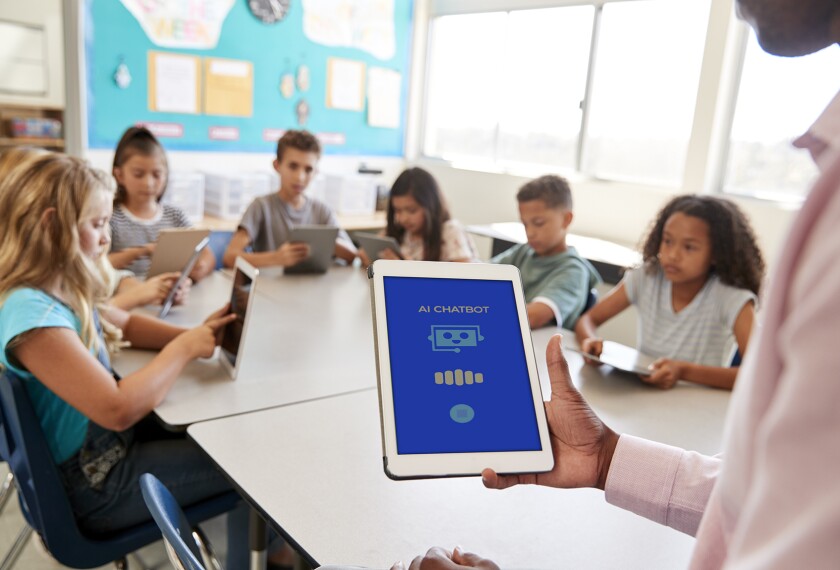Artificial intelligence—particularly the generative AI technology used in tools like ChatGPT—may seem like it suddenly emerged from nowhere.
The reality is the use of AI technologies has been evolving for years, and will likely continue to advance in the forseeable future. That is why students will need to understand AI’s potential, power, and pitfalls to be informed citizens, educators and experts said during an Education Week K-12 Essentials Forum earlier this year.
“Failure to incorporate AI literacy right now may leave students inadequately prepared for the future,” said Cathy Collins, a library and media specialist for Sharon public schools in Massachusetts. “Students are constantly bombarded by a mixture of information, misinformation and disinformation. So educators need to help our students to navigate this very complex media landscape, to help them differentiate between what’s factual, what’s misinformation. [That is] of course vital for fostering informed democratic participation.”
Teachers may feel at sea themselves in figuring out how AI may be used to spread false news stories or create manipulated images and audio known as “deepfakes,” added Katie Gallagher, a K-12 technology integration specialist for the Gunnison Watershed school district in Colorado.
“No one asked for the release of generative AI tools. No one was prepared for this,” Gallagher said.
Gallagher, who has been teaching for more than two decades, said she “never [would have] predicted something like this would be presented to just society as a whole, but especially the impact that it’s had in our schools.”
Schools need clearer policies and better practices for AI use
Educators should steer away from being “reactive” toward AI and instead “focus on that proactive side of building up the literacy skills, so that they can use those to benefit their social, emotional wellness, their overall well-being, and their ability to be critical thinkers,” Gallagher said.
But that is easier said than done in K-12 schools. To begin with, more than three-quarters of educators reported that their districts did not have clear policies on the use of AI for education, according to an EdWeek Research Center survey conducted a year ago. Without clear policies in place, educators will struggle to determine how to integrate the technology into instruction and the management of schools.
Plus, more experimentation and research needs to be done to determine what is age-appropriate use of AI. What that looks like is very different for elementary school students than for high schoolers.
To watch the full conversation about AI issues in education, register for the on-demand version of the forum here.






